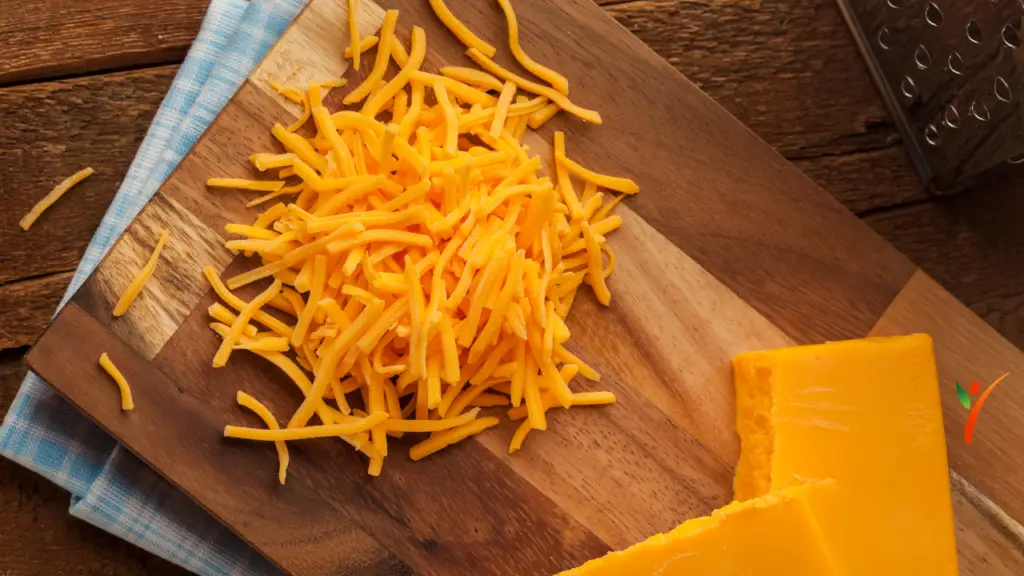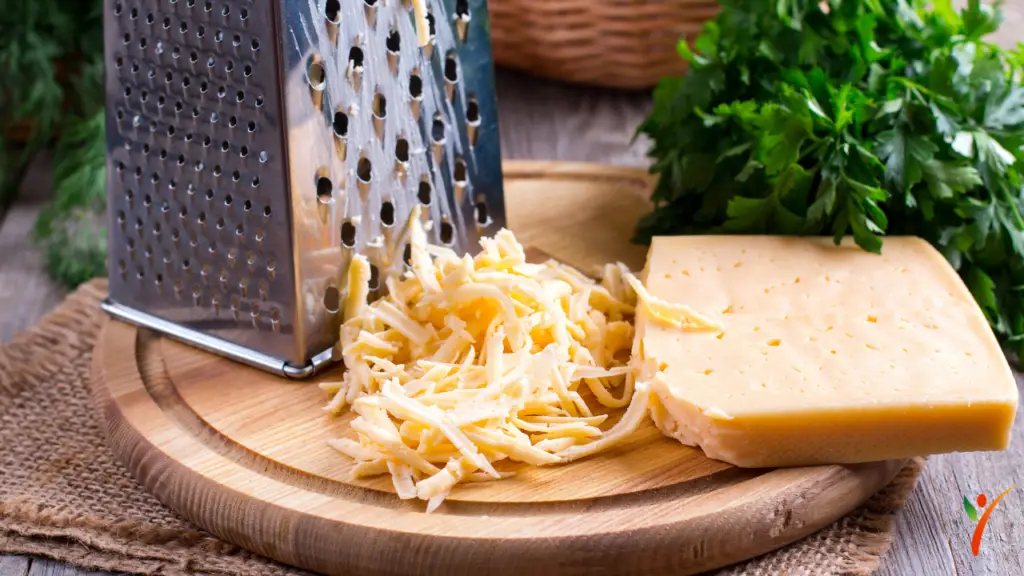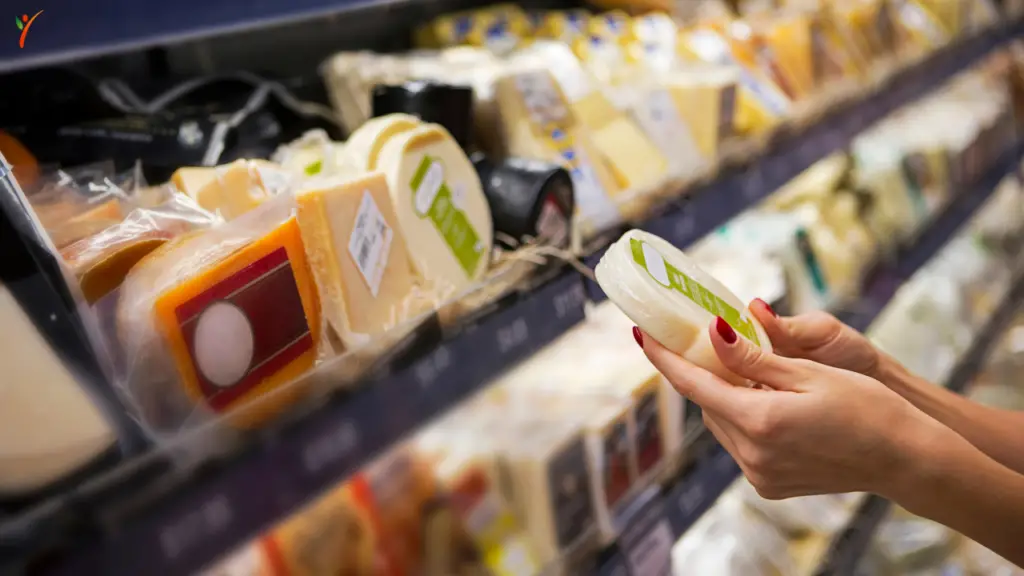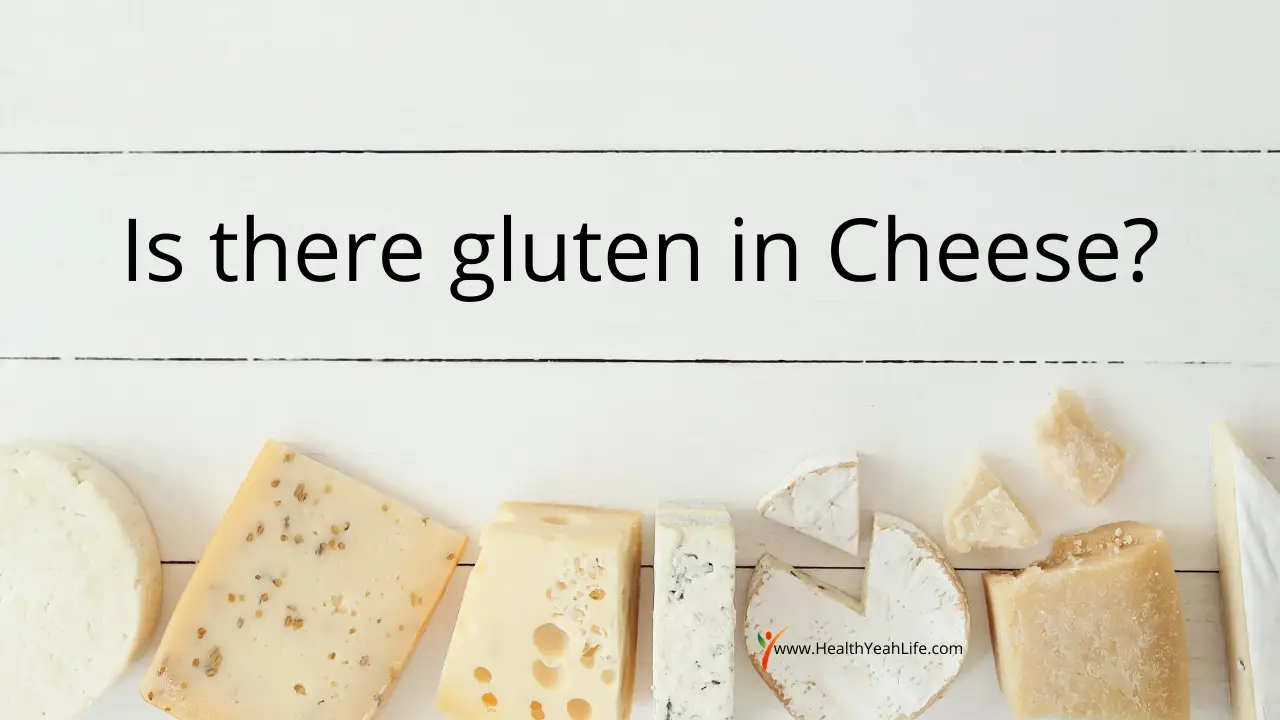Shredded cheese makes the entire process of making your favorite comfort food easier. What's more satisfying than folding in shredded cheese into your white sauce or adding it to a lasagna?
The problem is that many gluten-free dieters avoid store-bought shredded cheese for the risk of it containing gluten. And since shredding cheese yourself requires some amount of work, they refrain from it altogether.
But do you have to cut out shredded cheese from your life if you're following a gluten-free plan? Here's everything you need to know about shredded cheese and whether it contains gluten?
What is Shredded Cheese?

Shredded cheese is nowhere near anything complicated to create and is as simple as the name suggests—a block of cheese converts into long thin strips after pressing using a shredder or grater. To have the cheese cut smoothly, keep the block of cheese in the freezer for about an hour before shredding it. It gives the cheese just enough of a stiff texture that makes the shredding easier.
Although by definition, any cheese type can become shredded cheese. Of course, some are more popular. Common varieties that have made the cut (haha) are Edam, Mozzarella, and Cheddar. Many Mexican cuisines use a specific blend called Mexican Shred Blend. Mexican foods, e.g., burritos, nachos, and tacos, along with chili and loaded fries, make use of this. It is a blend of Natural Cheddar, Asadero, Monterey Jack, and Queso Quesadilla.
Fun fact- Nachos were first made in Mexico by an American for Mexicans.
Grated Cheese and Shredded Cheese- The Difference

Although somewhat similar, grated cheese and shredded cheese have a few distinctive features of their own. They differ in appearance and ingredients, with shredded cheese being long thin strips of Edam, Mozzarella, or Cheddar.
On the other hand, powdered grated cheese comes from Romano cheese or Parmesan. How is grated cheese made? The block should be hard and aged, compared to a soft block for shredded cheese. The widespread usage of shredded cheese includes adding it to mac and cheese and cheese scones. Meanwhile, pizza and salads usually have grated cheese added to them.
Cheese and Gluten- Do They Go Together?

Typically, many kinds of cheese do not contain gluten. However, malt vinegar, modified food starch, or wheat starch adds gluten to the cheese. Not to mention the risk of cross-contamination in processed food items that remains a culprit for gluten content. Thus, rendering it unsuitable to be used in a gluten-free meal. However, cheese manufacturers and brands have labels on their products, claiming them to be gluten-free.
It is only possible if the quantity of gluten is within the U.S. Food and Drug Administration limit. As long as its packaging is not with wheat products, full-fat cream cheese is gluten-free. Brie, cream cheese, parmesan cheese, and goat cheese are gluten-free. Some brands of cottage cheese might have modified food starch or wheat starch.
Since Edam's cheese blocks, mozzarella, and cheddar also make shredded cheese, it is usually gluten-free. You may use pure shredded cheese in a gluten-free diet.
Debunking the Myths

Nowadays, any myth can spread like wildfire on social media. They are discussed in Facebook groups and family meetings or social gatherings, thus gaining popularity. Another one of these myths is that shredded cheese bought from stores always contains gluten.
The statement behind this myth is that shredded cheese is coated in flour to prevent slices from clumping. But this isn't exactly true since some brands use gluten-free products only for their cheese. The best way to tell if something contains gluten or not is to check the ingredient list. Upon examination, you'll find only one specific difference between store-bought GF-labeled shredded cheese and home-made cheese.
The difference lies in a couple of anti-caking agents which prevent the cheese from clumping. The specific anti-caking agents used for this process include powdered cellulose and potato starch, and both are gluten-free.
Cellulose Powder-
It has gained a lot of popularity, and many food companies and manufacturers are using it in their products. The fantastic thing about cellulose powder is it has minimal or no-calorie content. It is healthy as it decreases fat and helps digestion. Additionally, it helps in stabilizing food.
Moreover, since it's a relatively cheaper option, it attracts more attention. It can act as an excellent anti-caking agent because of its ability to hold and soak moisture. The end product will be a coating on the cheese in the form of fine powder. Most importantly, it is gluten-free, so people who have celiac disease can leave their worries aside.
Potato Starch-
The second additive, which raises eyebrows, is not initially found in block cheese. Instead, potato starch makes an entry during the process of shredding. Like the cellulose powder, its primary function is to stop the clumping of strips and prevent sweating.
Similar to cellulose powder, the advantage it has is it, too, is gluten-free. Starch grains come from destroyed potato cells upon crushing. Further along, these grains are dried to powder after being washed out to form potato starch.
Thus, debunking the myth that anti-caking agents add gluten to the shredded cheese slices. Both the additives used that aren't in the original cheese block are rendered gluten-free.
Gluten-Free Shredded Cheese Brands

The top brands which sell shredded cheese include Kraft, Crystal Farms, Sargento, Tillamook, and many others. All of these have provided an ingredient list of every product on their websites. The next time you're out looking for gluten-free shredded cheese, invest in one of these.
Kraft–
All the products either use cellular powder as an anti-caking agent or contain modified cornstarch, both gluten-free. Moreover, the company does not label any item which includes more than 10ppm of gluten as gluten-free. Meaning that if any ingredient is obtained from wheat, they'll have to mention it on the label. Each shredded cheese label claims the absence of wheat, and henceforth gluten.
Crystal Farms-
This company uses cellulose powder and potato starch as agents for the prevention of clumping. Not only is their cheese great on a gluten-free diet, but it can help reduce your daily carb intake too. Hence, their claim that all shredded cheese products are gluten-free is valid.
Sargento-
The same anti-caking agents are in shredded cheese manufactured by Sargento as those used in cheese slices of Crystal Farms, i.e., potato starch and cellulose powder. Regarding these agents, they have quoted on their FAQ page that “neither of [the] anti-caking agents [is] derived from wheat, rye, oats, barley, or their cross-bred hybrids.”
Tillamook-
According to this brand, not only shredded cheese but all the rest of their products are gluten-free. They religiously use potato starch to avoid clumping for required products.
Borden-
Their website does not provide in-depth knowledge regarding the ingredients or detailed information about their gluten-free claims. However, the customer support service was kind enough to make up for that. They sent the following reply, “the anti-caking agents used are Potato Starch, Corn Starch, Powdered Cellulose, or Calcium Sulfate. These agents are food-grade, gluten-free, and are used at low measurements to keep our shredded cheese free-flowing”.
Cabot-
Cabot officially claims its shredded cheese to be safe on a gluten-free diet. What's more, they've also gone to the lengths of researching all the ingredients. The company takes extra steps to prevent cross-contamination and production in a gluten-free environment.
Private Brands-
Local brands, as compared to name brands, do not provide the public with that degree of transparency regarding ingredients. Although Kroger, Target, Aldi, and Walmart do not claim wheat to be an ingredient. Moreover, Walmart uses potato starch along with powdered cellulose as the anti-caking agent.
Meanwhile, Target uses potato starch, cellulose, and cornstarch. Kroger claims they use cornstarch, potato starch, calcium sulfate, and dextrose. Aldi provided with a little more insurance with their claim that their shredded cheese is gluten-free.

Final Thoughts
If you're a cheese-lover, like most, you don't want to miss out on the goodness of any cheese. And being a gluten-free dieter shouldn't mean you cut out the delicious foods from your life.
Always check to make sure you purchase gluten-free shredded cheese, and you're good to go. Then you can treat yourself to an occasional lasagna, pizza, or even soup.
Shredded cheese also goes perfectly with green salads if you're eating extra healthy!
The owner of this website, HealthYeahLife.com, is a participant in the Amazon Services LLC Associates Program, an affiliate advertising program designed to provide a means for sites to earn advertising fees by advertising and linking HealthYeahLife.com Review to Amazon properties including, but not limited to, amazon.com.


